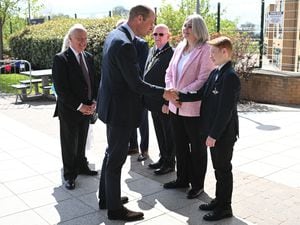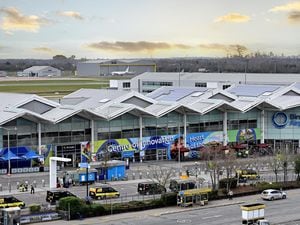West Brom turning tide back toward sustainability
There is no better place to see the financial gulf between the Premier League and Championship than in the financial accounts of a just-relegated club.

Albion’s figures for the 2018-19 season, released yesterday morning, were no different in that regard.
The picture painted was a familiar one, with turnover plummeting by £54million thanks chiefly to a reduction in broadcasting revenues which fell by nearly half.
When you consider the Baggies were also boosted by a parachute payment totalling some £48m – the kind of cash injection not available to the majority of their Championship counterparts – it quickly becomes apparent how the finances of the Premier League is on an altogether different plane to the rest of the English game.
But while the reduction in revenues was the obvious headline figure, the larger picture painted by the accounts was of a club successfully recalibrating after eight seasons of receiving top flight riches.
A financial hit from relegation was unavoidable, yet an ultimate pre-tax loss of £7m was hardly comparable to that suffered by others during a first season back in the second tier.
The balance sheet was aided by a £10m profit on player sales, while relegation clauses helped reduce the wage bill by almost half.
Notes after the balance sheet date also reveal a further £18m profit made in last summer’s transfer window, during a period when the club was successful in reducing the average age of the playing squad.
Of course, we now have the benefit of knowing just how well that business worked out, with Albion sat second in the Championship and on course for a return to the Premier League before the season was halted by the coronavirus. The pandemic has created uncertainty over how exactly the season will be resolved and an unexpected financial issue for every club. No-one can be certain just how the next few weeks and months will pan out.
What we can say for certain is that at the time the campaign was suspended, Albion’s outlook was brighter than most and it is hard to look past the impact of chief executive Mark Jenkins.
It is barely two years since Jenkins sat down with local media and – voice close to cracking with emotion – explained the situation he had found upon his return to the club a few weeks previously.
As managing director during Jeremy Peace’s reign as owner, Jenkins had been among those responsible for ensuring Albion lived within their means. For many years the Baggies were viewed as a model club.
Yet his departure, along with Peace, following Guochuan Lai’s takeover, led to the ill-fated summer spending spree of 2017 in which the club took aim at reaching the next level but only succeeded in setting up relegation.
In the space of 14 months Albion went from having £40million in the bank to needing an overdraft facility. “The club has gone beyond its own financial limits,” Jenkins said at the time.
The latest accounts spell out how the onus has been on getting back within those limits, while striking the balance to keep the team competitive on the pitch.
Gaining promotion remains hugely important. Lai has not and is unlikely to invest any more of his own money in the club, while revenues only shrink further the longer a club remains away from the top flight.
But while the owner might remain absent, his decision to bring Jenkins back to The Hawthorns increasingly looks the shrewdest of his reign. Uncertain times require a calm and experienced head in the boardroom and in Jenkins Albion can certainly claim to have that.





